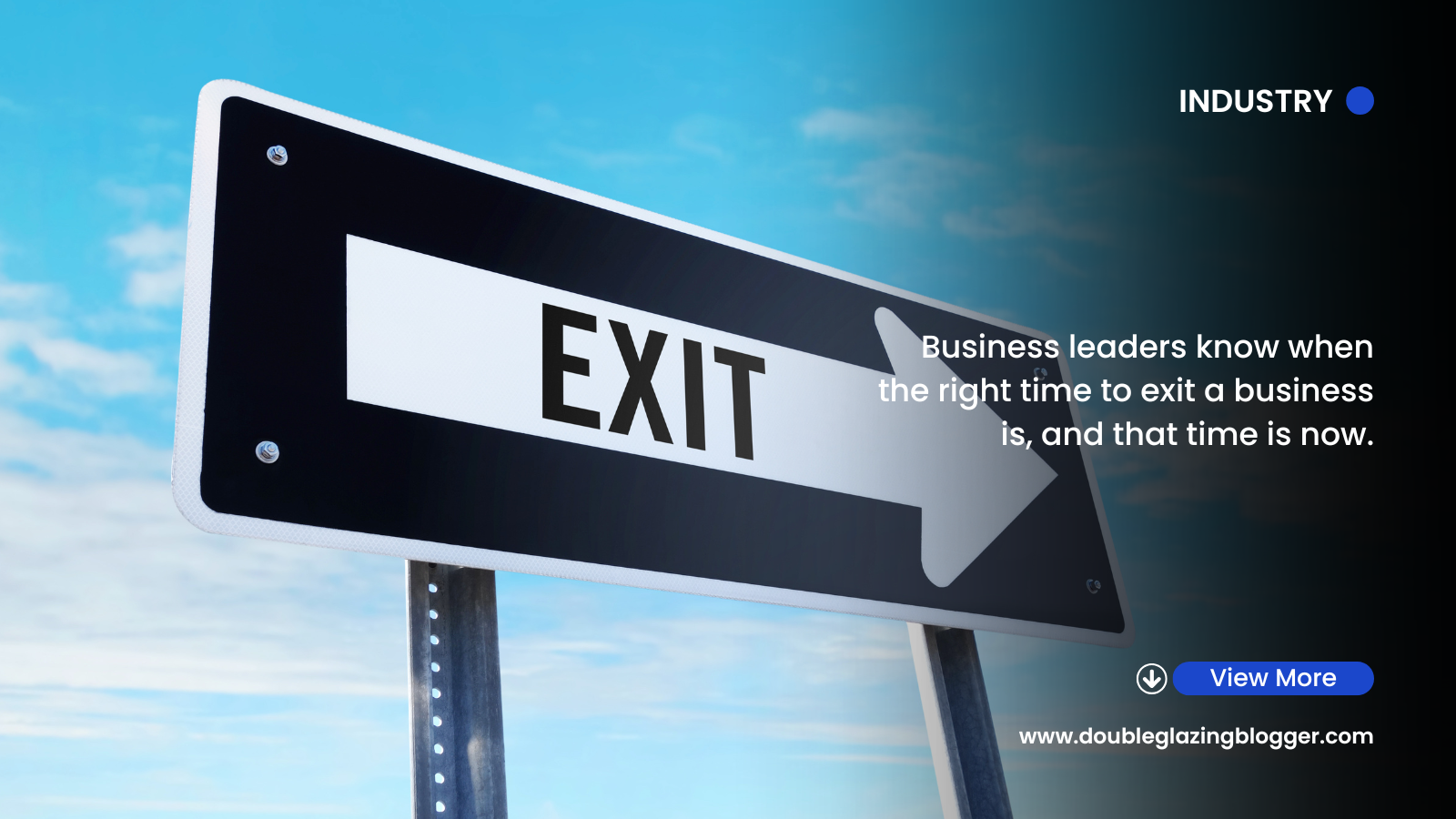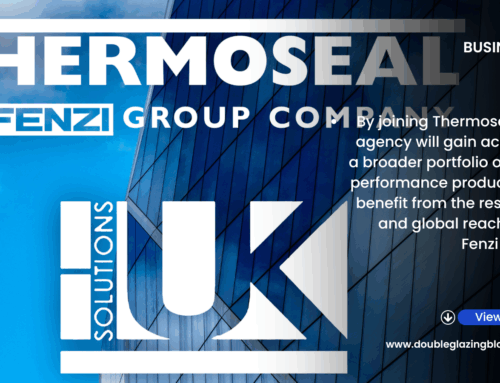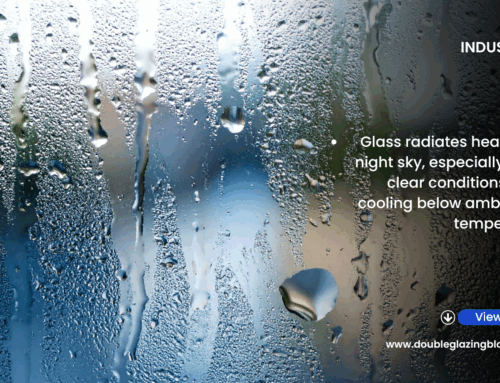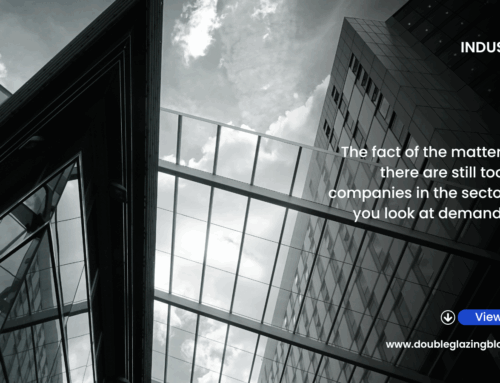I was in two minds as to whether to title this article “The Great Exit” or “The Great Escape”, but I judged that it lacked a degree of nuance required to explain what on earth has been happening not only in the past ten days but for the majority of this year.
The ground is shifting beneath our feet in real time. The landscape of our sector is rapidly changing, and the chances are we’re not done yet. I am going to attempt to try to unpack exactly what is happening in our sector right now.
Muscle moves
In the earlier part of the year, we saw a swathe of acquisitions in the aluminium market by companies predominantly not of the aluminium sector. For example, Eurocell acquired Alunet. ASSA Abloy acquired SAS, and Bailey bought Comar. All those deals were announced within just a few days of each other, and I remember at the time the industry struggling to keep up with the pace of the announcements.
At the same time, we were also seeing a number of insolvencies in this part of the market. Sadly, the harsh economic environment was being felt in all parts. It hasn’t really let up since the start of 2024.
Many of us know that of the few profitable avenues that remain in our sector at the moment, aluminium is one of them. The buyouts we saw were the major players deciding that now was the time to flex their financial muscle and buy their way into a part of the market which still has a good 5-10 years’ worth of growth ahead of it.
For the likes of Eurocell and others, it is cheaper and more rapid to buy a company already in the aluminium market, rather than spend millions in R&D and years to bring a brand new system to market.
The trend of non-aluminium companies actually started the previous year when Endurance bought BDC Aluminium in Kent. Before that event took place, I was predicting that it would not be too long before PVCU/door companies would be making ventures into the aluminium space, with growth opportunities too good to ignore.
Although the market remains very difficult, I still believe we will see more acquisitions of aluminium companies by non-aluminium companies. With a suppressed market, it is favourable for buyers and provides an exit opportunity for company owners who see the current economic sludge as continuing for longer than they would have liked to see.
The great exit
Which brings me on to more of the meatier side of my reasoning for what we are seeing.
The market is in a mess. Polished PR will call it “challenging” and “difficult”. More honest appraisals will call it “harsh” and “uncertain”. For me, the market is in quite severe disarray. The last time the market felt like this, as someone put it to me the other week, was during the financial crisis in 2008/2009. And that took some time to recover from.
Business leaders know when the right time to exit a business is, and that time is now. I did expect to see some tactical exits this year; no one wants to stay around in this kind of market longer than they have to. But I believe the sheer pace of the exits and therefore consolidation, I think, has caught many off guard.
As a result, we are seeing massive changes to supply chains within our sector. At a pace so few of us will have ever seen. And we’re not finished. The MD of VEKA UK left a comment on a DGB post saying that this is just going to be the start. How small will our sector have become by the end of this consolidation cycle?
We can also glean insights into the thoughts of business leaders in our sector who have sold up in such numbers. This rate of exit and change is not normal, and indicates that they do not see the UK economy or the UK fenestration market in a good place, both in the short term and longer term. Had there been some glimmers of hope by now, perhaps some might have stuck it out for a bit longer to see if the outlook became more positive. But the way I read this is that now is the time to exit before things become worse.
Sadly, the new Labour Government has done very little to inspire business and consumer confidence, both of which are on the floor right now. Broken promises from the start, homes pledges that will never be met, a heap of tax rises with a lot more to come in October, and a general ineptitude across the entire front bench have spooked much of the country. There is little hope there for businesses right now; indeed, the costs of running a business are already higher than they were under the previous government, and with a self-created £50bn black hole in the public finances, those taxes and running costs are about to go higher still.
I think we will see more exits by the end of the year and more into 2026.
Supply chains rearranged
Earlier this week, I published an article from Deceuninck, which provided their own analysis on the buyout of Epwin Group by VEKA parent company Laumann. You can read that here. In that piece, they seem to come to the conclusion that both brands will be merged to create a single entity. They then go on to say that they will focus on their own customers and ignore the noise, although most of the article was indeed about the VEKA/Epwin mashup.
I have read the press release from Laumann, and I have read the information provided by Epwin, and I am not totally sure that a full merger is what is going to happen. Both brands have their own loyal customer bases, especially in the case of VEKA. Yes, they will become part of the same group, but I think both brands will remain independent, selling their existing product lines to their current customer bases. I may be proved wrong, but a full brand merger may not happen, at least for a while.
What will happen in the case of Laumann is a huge increase in market share in the UK. And they will be able to leverage that in areas such as raw material supply, labour, transport and other areas of the business to their advantage. Bigger buying power generally means cheaper prices and will almost certainly put more pressure on the remaining handful of PVCu systems companies in the UK. Pressure will be denied by the other systems houses in public, but it will, without a doubt, put a squeeze on the others.
Then there is the tie-up of UAP and Brisant and their new owners, Allegion. They have quickly snapped up two of the biggest lock suppliers in the UK. Again, a merger of the two brands seems very unlikely, but no doubt Allegion will look at ways to make the most of the two companies they have just acquired and increase the market shares of the two businesses further.
What we are seeing is a huge realignment of supply chains. Moves rarely seen in such numbers in such a short space of time. It is hard to predict with any degree of accuracy what it will mean for all of us in the supply chain at this moment. But we can be sure that how our industry looks now won’t be the same in a years time.
One other area I would keep an eye on is the sale of Anglian. The two other major national installers, Safestyle and Everest, both fell foul of the downturn because of their old business models. High volume and low margins do not work well in a bad economy. Anglian’s model is now different, but they did shell out cash to buy the brands and the order books of the other two, which is a bit of a Hail Mary in times like these. The private equity company that owns them have decided to line up buyers. My suspicion is that they, too, think this is the time to leave the sector, like others have been doing. And if this is the case, is it because they fear the same fate will befall Anglian as it did with the other two? And what happens to the company if they cannot find a buyer?
We are not done yet. We will see more companies in our sector bought or closed before the year is out. Hold your breath.
Subscribe for FREE below to receive the weekly DGBulletin newsletter and monthly digital magazine!







